Healing After Divorce
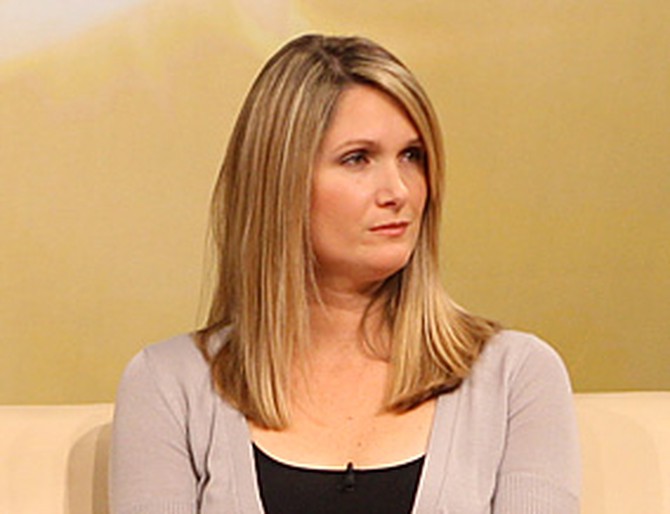
After our shows on children and divorce, we received thousands of e-mails from adults who still feel the pain of their parents' divorce. When Melissa was 11 years old, her parents divorced. Now 38 years old with a family of her own, Melissa says she never recovered from her parents' split.
Melissa's mother, Rosemarie, still gets emotional when she talks about the divorce. "It stopped me in my tracks, and I'm not even sure I'm over it. The one thing that I always felt is that [my husband] never really apologized to me," she says. "All I ever really wanted to do was be a wife and a mother. When the relationship ended, all of that ended also."
Melissa says her mother changed after the divorce, becoming angry and negative. "All I heard was my mother putting me down saying, 'Why are you going out with that boy?' 'Why are you working in this restaurant like a two-bit waitress?' Or, 'You're not good enough.' I have to fight that negative voice in my head today," Melissa says. "My frustration with her is that she can't own up to those mistakes and get past them. And I can't get past them if she won't admit them."
Melissa's mother, Rosemarie, still gets emotional when she talks about the divorce. "It stopped me in my tracks, and I'm not even sure I'm over it. The one thing that I always felt is that [my husband] never really apologized to me," she says. "All I ever really wanted to do was be a wife and a mother. When the relationship ended, all of that ended also."
Melissa says her mother changed after the divorce, becoming angry and negative. "All I heard was my mother putting me down saying, 'Why are you going out with that boy?' 'Why are you working in this restaurant like a two-bit waitress?' Or, 'You're not good enough.' I have to fight that negative voice in my head today," Melissa says. "My frustration with her is that she can't own up to those mistakes and get past them. And I can't get past them if she won't admit them."
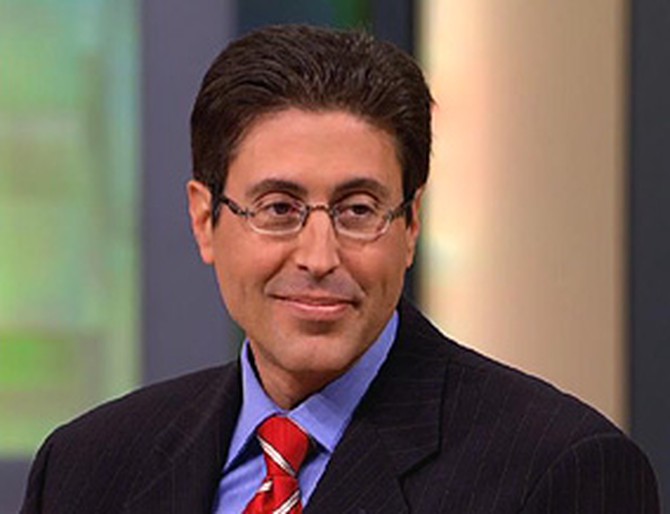
Divorce expert M. Gary Neuman, the founder of the Sandcastles Program for Children of Divorce and author of Helping Your Kids Cope with Divorce the Sandcastles Way, is back to help Melissa and her family heal.
He says if children of divorce don't address the pain they feel, it can last for decades. "It really is about the expression and having your parents understand," he says. "That mere expression helps it. Our feelings are time travelers. We keep re-experiencing that feeling until we go to the root. And then when we go to the root, we can begin to heal."
Gary explains that most adults shy away from confronting their parents about their feelings for the same reason they shied away from it when they were children. "They don't want to blame their parents because they're older," he says. "We've had little kids tell us that they don't even want to tell their parents how bad they're feeling when they're little because they don't want to overwhelm their parents—and they're 6, 7 and 10. Now when we're older, often we think, 'Oh, my gosh, I can't do that to my parents. It will break them apart.'"
Gary says it does not have to be this way. "You can do it in such a way that protects your parents' feelings in a calm way," he says. "Through that method you can really express it, and they can hear it, and you can really change how you relate to each other."
He says if children of divorce don't address the pain they feel, it can last for decades. "It really is about the expression and having your parents understand," he says. "That mere expression helps it. Our feelings are time travelers. We keep re-experiencing that feeling until we go to the root. And then when we go to the root, we can begin to heal."
Gary explains that most adults shy away from confronting their parents about their feelings for the same reason they shied away from it when they were children. "They don't want to blame their parents because they're older," he says. "We've had little kids tell us that they don't even want to tell their parents how bad they're feeling when they're little because they don't want to overwhelm their parents—and they're 6, 7 and 10. Now when we're older, often we think, 'Oh, my gosh, I can't do that to my parents. It will break them apart.'"
Gary says it does not have to be this way. "You can do it in such a way that protects your parents' feelings in a calm way," he says. "Through that method you can really express it, and they can hear it, and you can really change how you relate to each other."
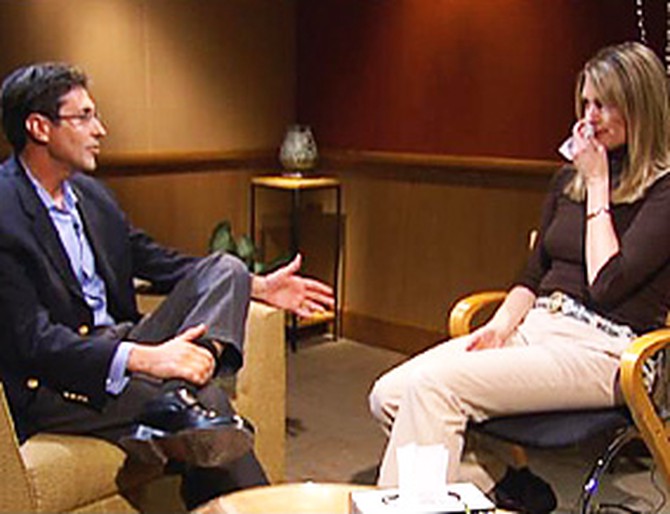
Before confronting her mother with her emotions, Melissa works with Gary to prepare. Melissa says her mother's focus after the divorce was not her children.
Gary asks Melissa what she would say to her mother if she were still a child. "I'd probably say, 'You should love us. You should love me. We are still here, and we could love you back,'" she says. "I mean, life didn't have to be over. I think in a lot of ways, her life was over when my dad left."
As we go through life, Gary says we often re-experience similar feelings from our pasts. "We keep hitting the nerve again and again. ... Melissa did not even want to really recognize that this voice, negative in her, is still so vibrant. We want to believe we get over it, but fighting it just keeps it bubbling up at the wrong times."
Gary asks Melissa what she would say to her mother if she were still a child. "I'd probably say, 'You should love us. You should love me. We are still here, and we could love you back,'" she says. "I mean, life didn't have to be over. I think in a lot of ways, her life was over when my dad left."
As we go through life, Gary says we often re-experience similar feelings from our pasts. "We keep hitting the nerve again and again. ... Melissa did not even want to really recognize that this voice, negative in her, is still so vibrant. We want to believe we get over it, but fighting it just keeps it bubbling up at the wrong times."

Nearly 30 years after her parents' divorce, Melissa is finally ready to confront her mother with Gary's help.
"I feel like I have problems from my childhood loneliness or the negative voice in my head that [says] I'm not good enough. I just need you to know that you hurt me," Melissa says. "I wanted you there, and I needed you, and I missed you. It affected me that you weren't there. I just feel like, you know, you didn't care about us."
Get Gary's five steps to a constructive conversation about divorce.
Rosemarie is initially reluctant to say she feels bad about what happened after the divorce. "I feel I did the best I could. When I married Melissa's father, I married him for life. When we didn't stay together, it made me incredibly angry. It changed my relationship with my children."
Gary helps Rosemarie understand that Melissa is talking to her about things she felt she missed with her. "I want you to still be able to understand her experience as a child was different somewhat than the experience you think she had as a child," Gary says.
Rosemarie finally tells Melissa what she wasn't able to during the divorce. "I feel bad. I adored you. You were my sanity. [You] were the one that would start dinner. You were the one that would clean the house. I knew when I came home things would be okay," Rosemarie says. "You did a good job. You did, and I appreciated that from you. ... I'm sorry, honey, for any discomfort, pain, anything. You know that, right?"
"I do now," Melissa says.
"I feel like I have problems from my childhood loneliness or the negative voice in my head that [says] I'm not good enough. I just need you to know that you hurt me," Melissa says. "I wanted you there, and I needed you, and I missed you. It affected me that you weren't there. I just feel like, you know, you didn't care about us."
Get Gary's five steps to a constructive conversation about divorce.
Rosemarie is initially reluctant to say she feels bad about what happened after the divorce. "I feel I did the best I could. When I married Melissa's father, I married him for life. When we didn't stay together, it made me incredibly angry. It changed my relationship with my children."
Gary helps Rosemarie understand that Melissa is talking to her about things she felt she missed with her. "I want you to still be able to understand her experience as a child was different somewhat than the experience you think she had as a child," Gary says.
Rosemarie finally tells Melissa what she wasn't able to during the divorce. "I feel bad. I adored you. You were my sanity. [You] were the one that would start dinner. You were the one that would clean the house. I knew when I came home things would be okay," Rosemarie says. "You did a good job. You did, and I appreciated that from you. ... I'm sorry, honey, for any discomfort, pain, anything. You know that, right?"
"I do now," Melissa says.
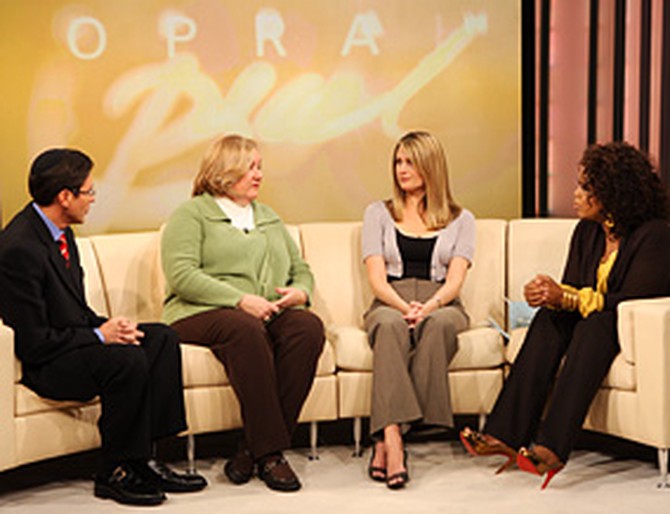
Gary says Rosemarie's tendency to rely on Melissa for support was fundamentally unfair. "As much as we know how difficult it is for [parents going through divorce], we want them to get their own help," he says. "You can't lean on your child to that extent where she becomes your sanity."
Rosemarie says she has always laid the blame for the divorce on her ex-husband, and this has left her angry for a very long time. "You're displacing it onto everybody else because you can't deal with it with your ex anymore. He won't have it," Gary says. "So now you're stuck exploding it to everywhere else. I think a crucial moment for you and for your daughter was when you said, 'I don't feel bad because I did everything I could.'"
Gary says sympathy and empathy for adult children of divorce is a critical process for parents. "You can feel bad for your child and even what you did that contributed to that problem and pain, and it doesn't make you a bad person. We know you tried your best," he says. "These parents did not intentionally try to hurt their children. ... But until you can just feel what it was like to be your daughter at that time, she has tremendous difficulty going on."
Rosemarie says she has always laid the blame for the divorce on her ex-husband, and this has left her angry for a very long time. "You're displacing it onto everybody else because you can't deal with it with your ex anymore. He won't have it," Gary says. "So now you're stuck exploding it to everywhere else. I think a crucial moment for you and for your daughter was when you said, 'I don't feel bad because I did everything I could.'"
Gary says sympathy and empathy for adult children of divorce is a critical process for parents. "You can feel bad for your child and even what you did that contributed to that problem and pain, and it doesn't make you a bad person. We know you tried your best," he says. "These parents did not intentionally try to hurt their children. ... But until you can just feel what it was like to be your daughter at that time, she has tremendous difficulty going on."
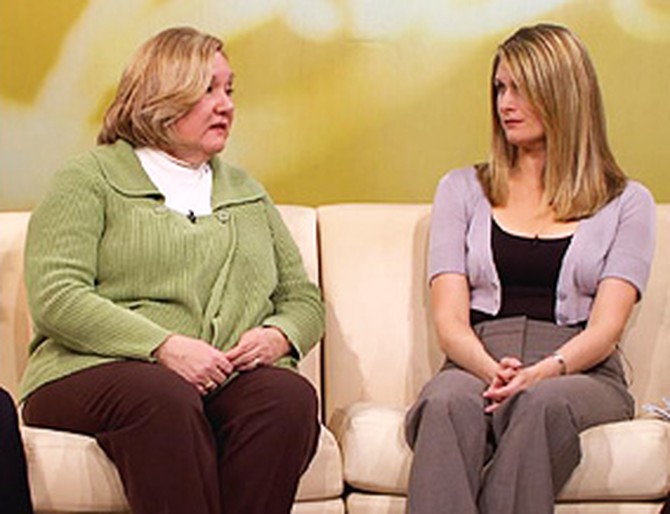
Now that Melissa and Rosemarie have broken the emotional ice, Gary says the key is for them to keep on going. "[There was a] change in Melissa when her mom just looked at her and talked to her as though she was 10 years old. [Rosemarie] said how much she thought she was wonderful and how much she loved her. Just for you to be able to continue to say those beautiful, real thoughts and feelings to your daughter is immeasurable as far as the good that it does for the two of you."
Melissa and Rosemarie say they plan to continue their conversations. "We had a wonderful experience and a wonderful couple of days without anyone else," Melissa says. "No one can take away the understanding that we have now of each other."
Melissa and Rosemarie say they plan to continue their conversations. "We had a wonderful experience and a wonderful couple of days without anyone else," Melissa says. "No one can take away the understanding that we have now of each other."
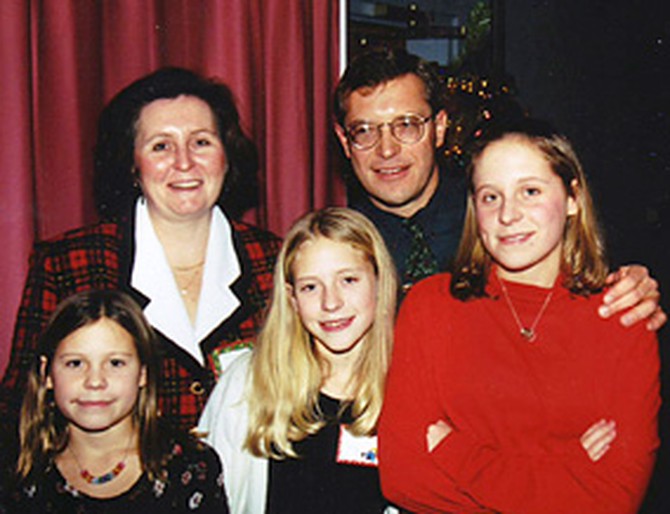
Jessica, 24, wrote in after seeing the shows about children of divorce. Her parents, Colleen and Tim, divorced nine years ago. "I, too, was child of divorce and went through several of the things that the children talked on your show about," Jessica wrote. "Not only did I feel trapped in the middle of my parents, but I thought it was my responsibility to keep my family together."
Colleen says her marriage began to splinter after 16 years. "I got real busy taking care of the kids, and he got real busy working," she says. "We were basically roommates."
Jessica says she was devastated when she heard her parents were getting a divorce. "It still hurts, I mean, it never goes away. I don't think I'll ever completely feel better," she says.
Mollie and Amy, Jessica's sisters, are also in their 20s. Mollie says she stopped talking to her dad after the divorce. "I blamed him for everything," she says. "My mom would tell me stuff like, 'I wanted to go to counseling with your dad, and he didn't want to make it work.' I would automatically be like, 'Wow, why wouldn't Dad want to make it work?'"
Colleen says she used Mollie as a girlfriend. "I really wanted Tim to look like the bad guy, too," she says. "I wanted everyone to know that I was innocent and he was the one that was wrong."
"I think as time went on, I really thought the girls were dealing with it very well," Tim says.
In September 2006, Tim remarried. "It was fine until they said their vows, and that was hard because you knew that he had said those to my mom," Jessica says. "It's a death of a family—that was just one more thing that showed we were never going to be the same."
Colleen says her marriage began to splinter after 16 years. "I got real busy taking care of the kids, and he got real busy working," she says. "We were basically roommates."
Jessica says she was devastated when she heard her parents were getting a divorce. "It still hurts, I mean, it never goes away. I don't think I'll ever completely feel better," she says.
Mollie and Amy, Jessica's sisters, are also in their 20s. Mollie says she stopped talking to her dad after the divorce. "I blamed him for everything," she says. "My mom would tell me stuff like, 'I wanted to go to counseling with your dad, and he didn't want to make it work.' I would automatically be like, 'Wow, why wouldn't Dad want to make it work?'"
Colleen says she used Mollie as a girlfriend. "I really wanted Tim to look like the bad guy, too," she says. "I wanted everyone to know that I was innocent and he was the one that was wrong."
"I think as time went on, I really thought the girls were dealing with it very well," Tim says.
In September 2006, Tim remarried. "It was fine until they said their vows, and that was hard because you knew that he had said those to my mom," Jessica says. "It's a death of a family—that was just one more thing that showed we were never going to be the same."
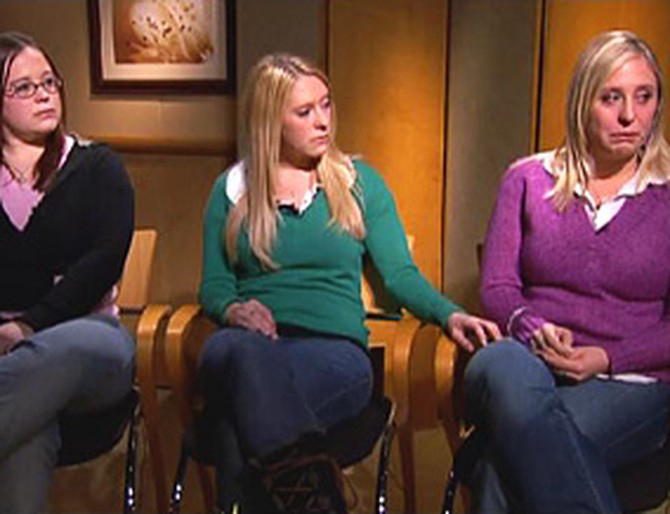
Time alone will not heal anything, Gary says. "We think that just because it's nine years later, it's done. You know, [Jessica, Amy and Mollie] never really had any closure," Gary says. "If you don't have an explanation, if things just break apart and everybody goes their separate ways, that moment gets frozen in time. ... We've never had an opportunity to look at it, and everybody's twisting their heads around wondering what the heck happened."
When the three sisters begin talking to Gary, their pain is still raw. "Dad was always the head of the family, and then I guess when he left, it kind of felt like he didn't care if we worked it out or not," Mollie says.
"Mom was so upset through the whole thing. She stayed in her room a lot and, emotionally, I didn't think my mom was there," Amy says. "And physically, my dad wasn't there."
"I wanted to fix everyone and fix everything, and I couldn't," Jessica says. "And trying to stay strong for my parents and trying to stay strong for my sisters, but really being a mess myself."
When the three sisters begin talking to Gary, their pain is still raw. "Dad was always the head of the family, and then I guess when he left, it kind of felt like he didn't care if we worked it out or not," Mollie says.
"Mom was so upset through the whole thing. She stayed in her room a lot and, emotionally, I didn't think my mom was there," Amy says. "And physically, my dad wasn't there."
"I wanted to fix everyone and fix everything, and I couldn't," Jessica says. "And trying to stay strong for my parents and trying to stay strong for my sisters, but really being a mess myself."
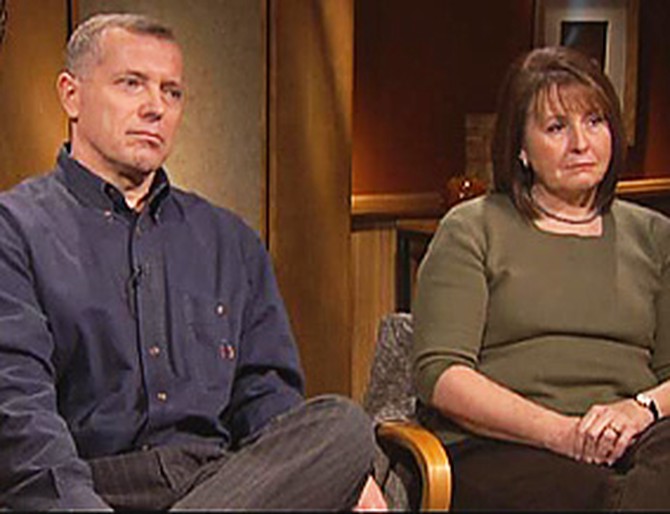
Together for the first time in nine years, the family's healing process begins with the girls opening up about their decade of pain. Colleen admits that she often treated Mollie more like a close girlfriend than a daughter. "I was really trying hard to manipulate your father," she says. "I just really wanted to save the marriage."
Jessica says she wishes her parents would have been more present. "Mom, you just, shut down emotionally for a while," she says. "And, Dad, just maybe not enough talking about it. That just kind of made us feel like he didn't care as much or weren't hurting as bad as we all were."
Amy says she wanted her parents to speak up more. "I think I was most angry about not being sort of made to talk about issues that I had," she says. Although Colleen says Amy's anger "scared the daylights" out of her, Tim says he thought they did the best they could. "We did get a lot of, 'Do you want to talk about it?' 'No,'" he says. "That may have been the response that we wanted. Maybe we didn't want to have to try and push you a little harder," Tim says.
Gary says if kids won't talk about divorce, it's probably because they don't want to hurt their parents. "It's the parents' job to say, ' I'm big enough. I'm capable. You can tell me whatever you need to tell me,'" Gary says.
Get Gary's five steps to having a constructive conversation about divorce.
Tim promises to work on his communication. "From this point on, I will not give up when you tell me that, 'I'm okay' and 'I don't want to talk about it,'" he says.
Colleen also apologizes to her family. "I'm sorry that I hurt you, and that I didn't listen when you needed me to listen, or that I wasn't there when you needed me to be there," she says.
After the talk, Jessica says she feels hopeful, and Mollie feels better knowing her parents understand what she went through. "It gives me hope that even though they're still divorced, I don't have to see it so broken," Amy says.
Jessica says she wishes her parents would have been more present. "Mom, you just, shut down emotionally for a while," she says. "And, Dad, just maybe not enough talking about it. That just kind of made us feel like he didn't care as much or weren't hurting as bad as we all were."
Amy says she wanted her parents to speak up more. "I think I was most angry about not being sort of made to talk about issues that I had," she says. Although Colleen says Amy's anger "scared the daylights" out of her, Tim says he thought they did the best they could. "We did get a lot of, 'Do you want to talk about it?' 'No,'" he says. "That may have been the response that we wanted. Maybe we didn't want to have to try and push you a little harder," Tim says.
Gary says if kids won't talk about divorce, it's probably because they don't want to hurt their parents. "It's the parents' job to say, ' I'm big enough. I'm capable. You can tell me whatever you need to tell me,'" Gary says.
Get Gary's five steps to having a constructive conversation about divorce.
Tim promises to work on his communication. "From this point on, I will not give up when you tell me that, 'I'm okay' and 'I don't want to talk about it,'" he says.
Colleen also apologizes to her family. "I'm sorry that I hurt you, and that I didn't listen when you needed me to listen, or that I wasn't there when you needed me to be there," she says.
After the talk, Jessica says she feels hopeful, and Mollie feels better knowing her parents understand what she went through. "It gives me hope that even though they're still divorced, I don't have to see it so broken," Amy says.
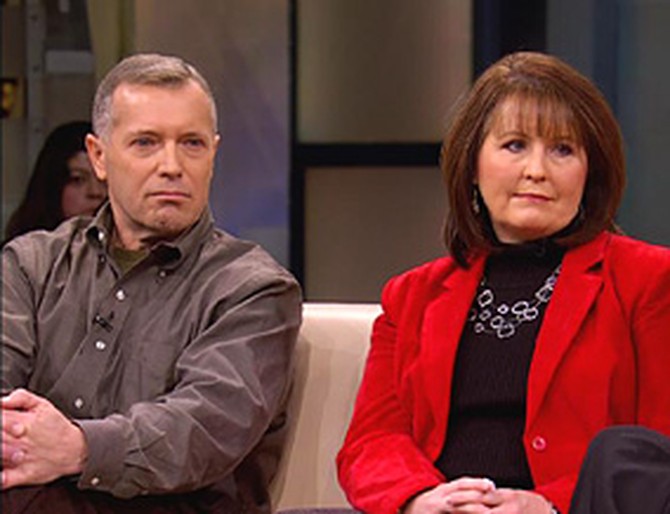
Until their conversation, Tim and Colleen say they had no idea how much their daughters suffered. "I think that we knew the pain would last a long, long time, and I think we know now it will last forever," Tim says.
Although Colleen was surprised at how angry Amy was, Gary wasn't. "The anger flows. Now the children are raised in an environment where they see the behavior of anger, and that's the way their parent navigates life," Gary says. "Well, guess what? That's the way I learn to navigate life—from my parents' behavior. That anger keeps vibrant and keeps going."
The pain of divorce only causes everyone to blame themselves, Gary says. Parents need to let go of the fact that they will be blamed. "It's painful for a parent to think that you contributed or hurt your child," Gary says. "Most adults are not looking to say to their parent, 'I blame you, and I'm allowed to go on and screw up in my life because of you.' They really are just looking for some understanding."
Gary says parents need to make that effort to sympathize with their child and avoid making excuses. "Just say, 'I understand you. I apologize. But I know you're not telling me I'm a bad person.' That way they don't have to defend themselves. ... You can explain it, and it can be understandable, but that does not make it excusable."
Although Colleen was surprised at how angry Amy was, Gary wasn't. "The anger flows. Now the children are raised in an environment where they see the behavior of anger, and that's the way their parent navigates life," Gary says. "Well, guess what? That's the way I learn to navigate life—from my parents' behavior. That anger keeps vibrant and keeps going."
The pain of divorce only causes everyone to blame themselves, Gary says. Parents need to let go of the fact that they will be blamed. "It's painful for a parent to think that you contributed or hurt your child," Gary says. "Most adults are not looking to say to their parent, 'I blame you, and I'm allowed to go on and screw up in my life because of you.' They really are just looking for some understanding."
Gary says parents need to make that effort to sympathize with their child and avoid making excuses. "Just say, 'I understand you. I apologize. But I know you're not telling me I'm a bad person.' That way they don't have to defend themselves. ... You can explain it, and it can be understandable, but that does not make it excusable."
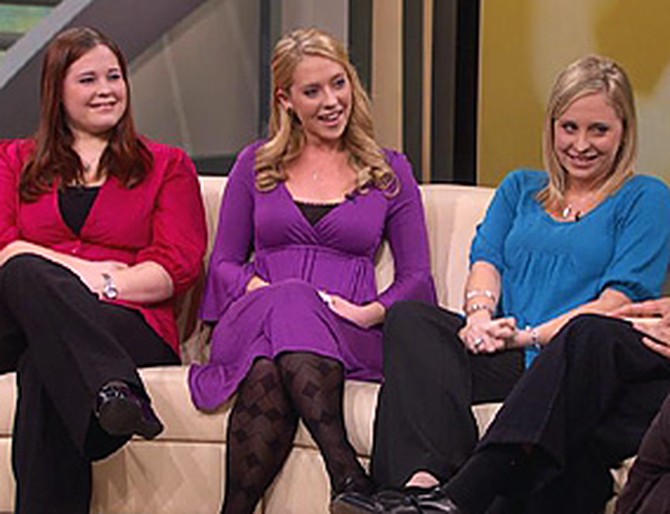
How can this family continue to heal? Gary says they need to keep the lines of communication open. "They have committed to continue to meet together, to have respect for this original family, and be able to keep talking in that way. These parents really are wanting to listen," Gary says.
Although they have had smaller conversations, Gary says the family needs to sit down as a whole and continue exploring everyone's feelings. "They really did hear things that they just didn't know," he says. "They all [breathed] such a sigh of relief. You see it when you watch the people. They start to breathe differently when they start to hear their parents really understand and get them."
Although they have had smaller conversations, Gary says the family needs to sit down as a whole and continue exploring everyone's feelings. "They really did hear things that they just didn't know," he says. "They all [breathed] such a sigh of relief. You see it when you watch the people. They start to breathe differently when they start to hear their parents really understand and get them."

Tina, a 34-year-old wife and mother, is still struggling to forgive her parents after their divorce nearly 30 years ago. "Things started to really upset me when my dad stopped showing up to pick me up, or he would say he would be there at such and such a time, and I would wait and wait, and he wouldn't show."
Once as a child, Tina performed in a talent show. "I remember doing this little dance and looking at the door constantly. He just never showed up," she says. "He was my dad, but also my friend. And now he just didn't care. I started wondering, 'What happened to him?'"
When Tina joined the police department, her father didn't make her graduation ceremony. "I felt like, this is ridiculous. I'm 29 years old, and I'm still looking at the door again like I'm in third grade. It's just ridiculous that I just couldn't let it go," she says.
Tina says she didn't see her mother much while growing up and spent a lot of time with her grandparents. "When she started dating again, it became all about whoever she was dating," she says. "I remember her just being absent a lot. It's kind of like I lost them both."
Ready to let go of her pain, Tina says she feels like an apology from her father would help. "It would mean a great deal. I'd like for us to go back to being buddies again," Tina says.
Once as a child, Tina performed in a talent show. "I remember doing this little dance and looking at the door constantly. He just never showed up," she says. "He was my dad, but also my friend. And now he just didn't care. I started wondering, 'What happened to him?'"
When Tina joined the police department, her father didn't make her graduation ceremony. "I felt like, this is ridiculous. I'm 29 years old, and I'm still looking at the door again like I'm in third grade. It's just ridiculous that I just couldn't let it go," she says.
Tina says she didn't see her mother much while growing up and spent a lot of time with her grandparents. "When she started dating again, it became all about whoever she was dating," she says. "I remember her just being absent a lot. It's kind of like I lost them both."
Ready to let go of her pain, Tina says she feels like an apology from her father would help. "It would mean a great deal. I'd like for us to go back to being buddies again," Tina says.
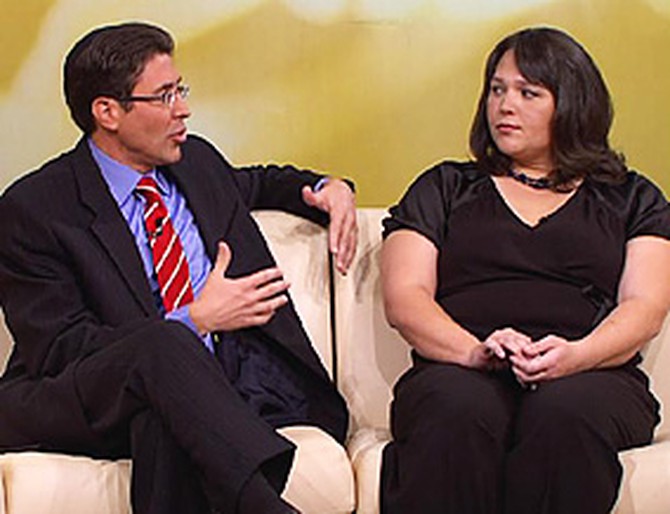
Tina's mother, Victoria, says she realized her daughter was hurting but never talked about it with her. "I've always had the guilt of just not being there when I should have been," she says.
Find out how to talk to your loved ones about divorce.
Terry says he eventually realized how his broken promises were affecting Tina. "I would pick her up, and she just didn't want to be with me anymore. She felt like I wasn't going to always be there for her."
Gary says telling a child you'll be there for them and not following through feels like rejection for the child. "It causes such trust issues. You don't trust your environment if you can't trust the people who love you the most," Gary says. "What does that say to trusting your spouse one day? Trusting others that you should be able to trust? It's so hurtful. It takes a lot of work to overcome."
Find out how to talk to your loved ones about divorce.
Terry says he eventually realized how his broken promises were affecting Tina. "I would pick her up, and she just didn't want to be with me anymore. She felt like I wasn't going to always be there for her."
Gary says telling a child you'll be there for them and not following through feels like rejection for the child. "It causes such trust issues. You don't trust your environment if you can't trust the people who love you the most," Gary says. "What does that say to trusting your spouse one day? Trusting others that you should be able to trust? It's so hurtful. It takes a lot of work to overcome."
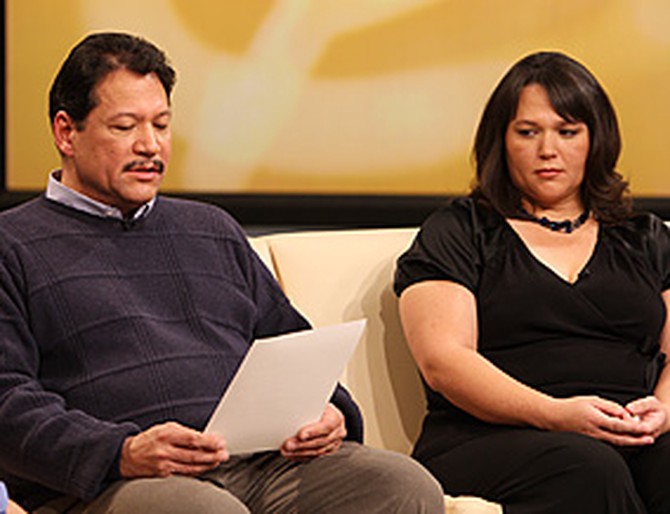
Tina's father worked with Gary to write a letter of apology to his daughter. "I've been trying to write this letter for at least 15, 20 years," he says. "I would stop at work what I'm doing and start typing on the computer but couldn't get it done. So I'm just glad I can do it now."
In the letter Terry writes, "I can only imagine your anger and disappointment in me as your father," he says. "When I missed your police academy graduation and said it was a mix-up, you said, 'No big deal,' but I knew it was really a big deal. You have been kinder to me that I've ever deserved. There's no way a simple letter of apology can truly heal the wounds of neglect, but starting somewhere is important to me. I can only pray for your forgiveness and hope you'll allow me to be more than just a father by technicality."
Hearing her ex-husband apologize to their daughter means a lot to Victoria. "She would always keep it inside, but I knew it was bothering her," she says. "This has given them an opportunity to heal."
Tina says her dad's letter means the world to her. "I feel like a big piece has been put back in my life and I can move forward," Tina says.
In the letter Terry writes, "I can only imagine your anger and disappointment in me as your father," he says. "When I missed your police academy graduation and said it was a mix-up, you said, 'No big deal,' but I knew it was really a big deal. You have been kinder to me that I've ever deserved. There's no way a simple letter of apology can truly heal the wounds of neglect, but starting somewhere is important to me. I can only pray for your forgiveness and hope you'll allow me to be more than just a father by technicality."
Hearing her ex-husband apologize to their daughter means a lot to Victoria. "She would always keep it inside, but I knew it was bothering her," she says. "This has given them an opportunity to heal."
Tina says her dad's letter means the world to her. "I feel like a big piece has been put back in my life and I can move forward," Tina says.
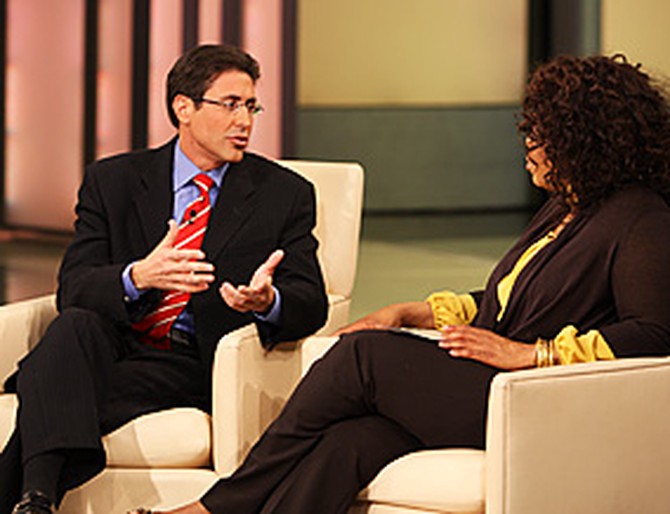
Gary says it's never too late to start the healing process, but you don't have to wait for your children to make the first move. "Today is not only about children coming to their parents, but how all the parents out there who can start the conversation by going to their children, giving them permission to tell them how they feel."
Mending years of hurt can start with something as simple as a phone call or letter. If you're having trouble reaching out, ask a trusted family member or friend to help mediate or facilitate. "Get together with them and tell them, 'I really want to hear what it was like to be you. I can take it. I love you. And I care enough about you and us that I want to move forward,'" Gary says. "Give the children permission to tell you how they really feel."
Take this assessment to see how your children are really coping with your divorce.
Mending years of hurt can start with something as simple as a phone call or letter. If you're having trouble reaching out, ask a trusted family member or friend to help mediate or facilitate. "Get together with them and tell them, 'I really want to hear what it was like to be you. I can take it. I love you. And I care enough about you and us that I want to move forward,'" Gary says. "Give the children permission to tell you how they really feel."
Take this assessment to see how your children are really coping with your divorce.
Published 03/14/2008

